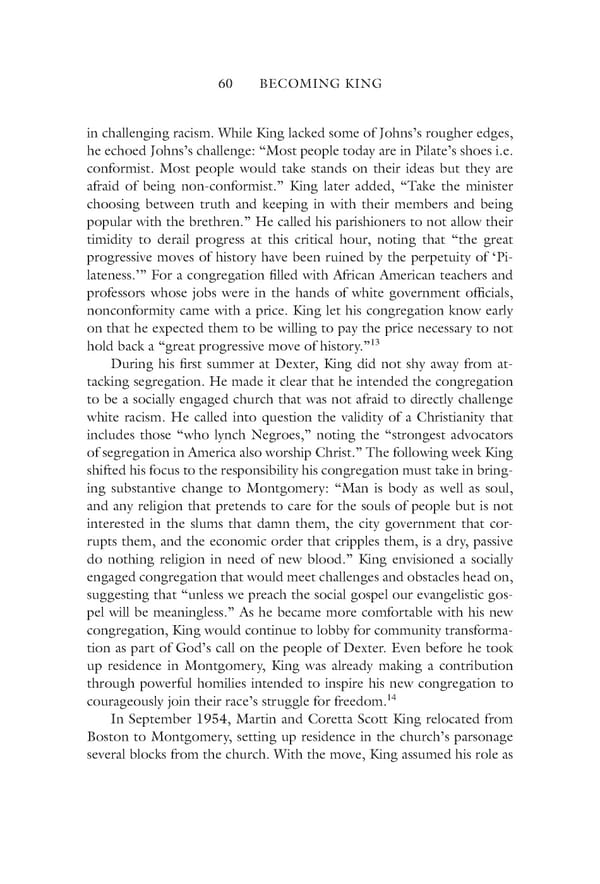60 BECOMING KING in challenging racism. While King lacked some of Johns’s rougher edges, he echoed Johns’s challenge: “Most people today are in Pilate’s shoes i.e. conformist. Most people would take stands on their ideas but they are afraid of being non-conformist.” King later added, “Take the minister choosing between truth and keeping in with their members and being popular with the brethren.” He called his parishioners to not allow their timidity to derail progress at this critical hour, noting that “the great progressive moves of history have been ruined by the perpetuity of ‘Pi- lateness.’” For a congregation filled with African American teachers and professors whose jobs were in the hands of white government officials, nonconformity came with a price. King let his congregation know early on that he expected them to be willing to pay the price necessary to not 13 hold back a “great progressive move of history.” During his first summer at Dexter, King did not shy away from at- tacking segregation. He made it clear that he intended the congregation to be a socially engaged church that was not afraid to directly challenge white racism. He called into question the validity of a Christianity that includes those “who lynch Negroes,” noting the “strongest advocators of segregation in America also worship Christ.” The following week King shifted his focus to the responsibility his congregation must take in bring- ing substantive change to Montgomery: “Man is body as well as soul, and any religion that pretends to care for the souls of people but is not interested in the slums that damn them, the city government that cor- rupts them, and the economic order that cripples them, is a dry, passive do nothing religion in need of new blood.” King envisioned a socially engaged congregation that would meet challenges and obstacles head on, suggesting that “unless we preach the social gospel our evangelistic gos- pel will be meaningless.” As he became more comfortable with his new congregation, King would continue to lobby for community transforma- tion as part of God’s call on the people of Dexter. Even before he took up residence in Montgomery, King was already making a contribution through powerful homilies intended to inspire his new congregation to 14 courageously join their race’s struggle for freedom. In September 1954, Martin and Coretta Scott King relocated from Boston to Montgomery, setting up residence in the church’s parsonage several blocks from the church. With the move, King assumed his role as
 Becoming King: Martin Luther King Jr. Page 80 Page 82
Becoming King: Martin Luther King Jr. Page 80 Page 82